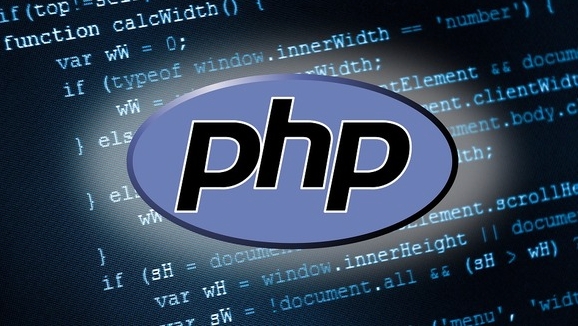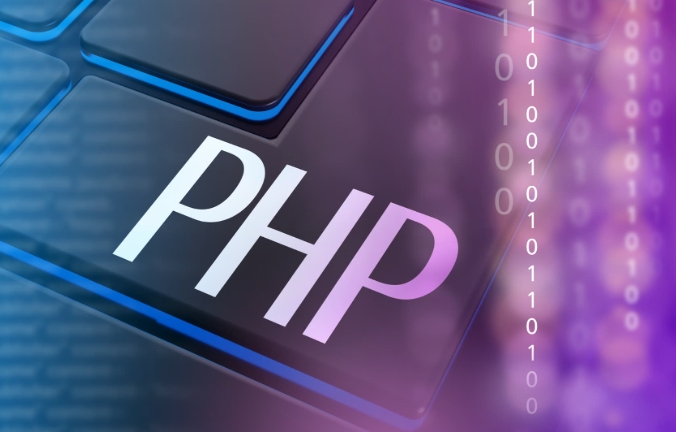The key to configuring a PHP development environment is to select the toolchain, install the necessary components and ensure normal collaboration. 1. Install the PHP interpreter and commonly used extensions. It is recommended that novices use XAMPP, WAMP or MAMP one-click integration packages, or manually install and enable php-mbstring, php-curl and other extensions through brew, apt, etc.; 2. Build a local development server, and you can use the integration package's own Apache, PHP built-in server (such as php -S localhost:8000) or Nginx PHP-FPM. It is recommended that novices use the built-in server first; 3. Configure database connections, such as using MySQL in the integration package, and test through PDO or mysqli connection; 4. Use IDE to improve efficiency, recommend VS Code, PhpStorm, etc., and configure code prompts and debugging tools to improve the development experience.

It is actually not difficult to configure a PHP development environment, but it may be a bit fascinating for beginners. The key is to choose the toolchain, install the necessary components, and ensure that they can work together properly. Let’s start from several common needs and talk about how to build it step by step.

1. Install the PHP interpreter and basic extensions
The first thing to have is PHP itself. You can choose to install it directly on the local system, or use a virtual machine or Docker. It is recommended that beginners use XAMPP or WAMP (Windows) or MAMP (Mac). These integration packages include Apache, MySQL and PHP, which can save you a lot of trouble when installing with one click.

If you prefer manual control version, you can use:
- macOS :
brew install php - Ubuntu/Debian :
sudo apt install php php-cli php-mysql - Windows : Download the official PHP package and configure environment variables
Remember to check whether commonly used extensions are enabled, such as php-mbstring , php-curl , php-gd , etc. Many frameworks rely on these.

2. Build a local development server
To write PHP, you need to run to see the effect, so you need to have a local server. There are several ways:
- Use XAMPP/WAMP/MAMP with Apache
- Use PHP built-in development server: After entering the project directory, run
php -S localhost:8000 - Advanced users can consider using Nginx PHP-FPM
It is recommended that novices try using the built-in server first, it is simple without changing the configuration. For example, you wrote an index.php file and execute:
php -S localhost:8000
Then the browser opens http://www.miracleart.cn/link/f74d6ef882234fd34400a296b1da6149 and you will see the page.
3. Configure database connections (such as MySQL)
Most PHP projects require database support. If you are using the integration package, MySQL is already included. After starting the service, you can manage the database through phpMyAdmin or log in on the command line:
mysql -u root -p
PHP is generally used to connect to databases with PDO or mysqli. Let's give a simple example:
<?php
$host = '127.0.0.1';
$db = 'test_db';
$user = 'root';
$pass = '';
$charset = 'utf8mb4';
$dsn = "mysql:host=$host;dbname=$db;charset=$charset";
try {
$pdo = new PDO($dsn, $user, $pass);
} catch (\PDOException $e) {
throw new \PDOException($e->getMessage(), (int)$e->getCode());
}
?>If you can't connect, check whether the database service is running, whether the username and password are correct, and whether you have remote access (if it is a remote database).
4. Use IDE to improve efficiency
Although you can write PHP with Notepad, it will be much easier to use a good editor. A few commonly used ones are recommended:
- VS Code : Free, lightweight, and rich plug-ins (such as PHP Intelephense)
- PhpStorm : powerful but expensive, suitable for professional developers
- Sublime Text/Atom : Not bad, but not as popular as the first two
After configuring the code prompts, debuggers (Xdebug), and syntax highlighting, you will find that writing code is much faster.
Basically that's it. The whole process seems to have many steps, but in fact each step is not complicated. It is easy to ignore certain details, such as the wrong path, the extension is not opened, the service is not started, etc. Don't worry if you encounter problems, check the logs and Google can basically solve them.
The above is the detailed content of How to configure PHP development environment?. For more information, please follow other related articles on the PHP Chinese website!

Hot AI Tools

Undress AI Tool
Undress images for free

Undresser.AI Undress
AI-powered app for creating realistic nude photos

AI Clothes Remover
Online AI tool for removing clothes from photos.

Clothoff.io
AI clothes remover

Video Face Swap
Swap faces in any video effortlessly with our completely free AI face swap tool!

Hot Article

Hot Tools

Notepad++7.3.1
Easy-to-use and free code editor

SublimeText3 Chinese version
Chinese version, very easy to use

Zend Studio 13.0.1
Powerful PHP integrated development environment

Dreamweaver CS6
Visual web development tools

SublimeText3 Mac version
God-level code editing software (SublimeText3)
 PHP Variable Scope Explained
Jul 17, 2025 am 04:16 AM
PHP Variable Scope Explained
Jul 17, 2025 am 04:16 AM
Common problems and solutions for PHP variable scope include: 1. The global variable cannot be accessed within the function, and it needs to be passed in using the global keyword or parameter; 2. The static variable is declared with static, and it is only initialized once and the value is maintained between multiple calls; 3. Hyperglobal variables such as $_GET and $_POST can be used directly in any scope, but you need to pay attention to safe filtering; 4. Anonymous functions need to introduce parent scope variables through the use keyword, and when modifying external variables, you need to pass a reference. Mastering these rules can help avoid errors and improve code stability.
 How to handle File Uploads securely in PHP?
Jul 08, 2025 am 02:37 AM
How to handle File Uploads securely in PHP?
Jul 08, 2025 am 02:37 AM
To safely handle PHP file uploads, you need to verify the source and type, control the file name and path, set server restrictions, and process media files twice. 1. Verify the upload source to prevent CSRF through token and detect the real MIME type through finfo_file using whitelist control; 2. Rename the file to a random string and determine the extension to store it in a non-Web directory according to the detection type; 3. PHP configuration limits the upload size and temporary directory Nginx/Apache prohibits access to the upload directory; 4. The GD library resaves the pictures to clear potential malicious data.
 Commenting Out Code in PHP
Jul 18, 2025 am 04:57 AM
Commenting Out Code in PHP
Jul 18, 2025 am 04:57 AM
There are three common methods for PHP comment code: 1. Use // or # to block one line of code, and it is recommended to use //; 2. Use /.../ to wrap code blocks with multiple lines, which cannot be nested but can be crossed; 3. Combination skills comments such as using /if(){}/ to control logic blocks, or to improve efficiency with editor shortcut keys, you should pay attention to closing symbols and avoid nesting when using them.
 How Do Generators Work in PHP?
Jul 11, 2025 am 03:12 AM
How Do Generators Work in PHP?
Jul 11, 2025 am 03:12 AM
AgeneratorinPHPisamemory-efficientwaytoiterateoverlargedatasetsbyyieldingvaluesoneatatimeinsteadofreturningthemallatonce.1.Generatorsusetheyieldkeywordtoproducevaluesondemand,reducingmemoryusage.2.Theyareusefulforhandlingbigloops,readinglargefiles,or
 Tips for Writing PHP Comments
Jul 18, 2025 am 04:51 AM
Tips for Writing PHP Comments
Jul 18, 2025 am 04:51 AM
The key to writing PHP comments is to clarify the purpose and specifications. Comments should explain "why" rather than "what was done", avoiding redundancy or too simplicity. 1. Use a unified format, such as docblock (/*/) for class and method descriptions to improve readability and tool compatibility; 2. Emphasize the reasons behind the logic, such as why JS jumps need to be output manually; 3. Add an overview description before complex code, describe the process in steps, and help understand the overall idea; 4. Use TODO and FIXME rationally to mark to-do items and problems to facilitate subsequent tracking and collaboration. Good annotations can reduce communication costs and improve code maintenance efficiency.
 Learning PHP: A Beginner's Guide
Jul 18, 2025 am 04:54 AM
Learning PHP: A Beginner's Guide
Jul 18, 2025 am 04:54 AM
TolearnPHPeffectively,startbysettingupalocalserverenvironmentusingtoolslikeXAMPPandacodeeditorlikeVSCode.1)InstallXAMPPforApache,MySQL,andPHP.2)Useacodeeditorforsyntaxsupport.3)TestyoursetupwithasimplePHPfile.Next,learnPHPbasicsincludingvariables,ech
 How to access a character in a string by index in PHP
Jul 12, 2025 am 03:15 AM
How to access a character in a string by index in PHP
Jul 12, 2025 am 03:15 AM
In PHP, you can use square brackets or curly braces to obtain string specific index characters, but square brackets are recommended; the index starts from 0, and the access outside the range returns a null value and cannot be assigned a value; mb_substr is required to handle multi-byte characters. For example: $str="hello";echo$str[0]; output h; and Chinese characters such as mb_substr($str,1,1) need to obtain the correct result; in actual applications, the length of the string should be checked before looping, dynamic strings need to be verified for validity, and multilingual projects recommend using multi-byte security functions uniformly.
 Quick PHP Installation Tutorial
Jul 18, 2025 am 04:52 AM
Quick PHP Installation Tutorial
Jul 18, 2025 am 04:52 AM
ToinstallPHPquickly,useXAMPPonWindowsorHomebrewonmacOS.1.OnWindows,downloadandinstallXAMPP,selectcomponents,startApache,andplacefilesinhtdocs.2.Alternatively,manuallyinstallPHPfromphp.netandsetupaserverlikeApache.3.OnmacOS,installHomebrew,thenrun'bre






